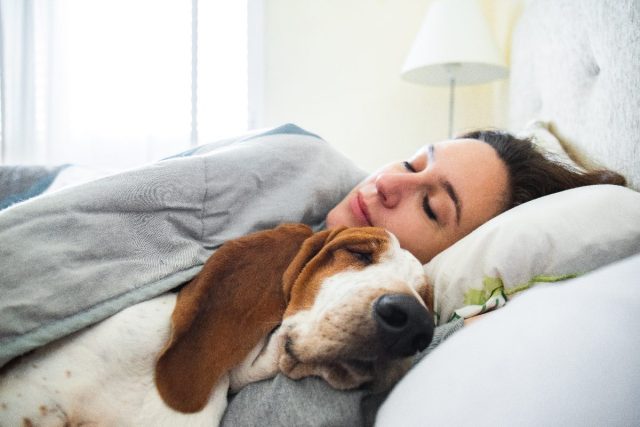We've all been touched by memory loss. Whether personally (TBI, Post-COVID, Dementia) or someone we love. The thing is, there is a lot we can do if we are empowered with information. I'm trained in both psychiatry and neurology because all aspects of how we experience memory loss are important to how we diagnose specifically what kind of memory loss we are experiencing and what to do about it. In my experience, the more specific I can be with someone about what is going on with their memory, the better. Nobody likes feeling uncertain about something they are experiencing. Not knowing why memory is changing can be scary. Once we are given specific information, we all of a sudden can act, and do something about it. Autonomy and choice is central to being human. Read on to find out more—and to ensure your health and the health of others, don't miss Already Had COVID? These Symptoms May "Never Go Away".

The first tip for improving memory is leading a healthy lifestyle. A significant portion of dementia is caused by vascular disease either on its own or as a fertile breeding ground for other dementias, such as Alzheimer's disease. So we know that a healthy lifestyle will keep your memory sharper longer. All those things that medical providers nag our patients about, including diet and exercise, go a long way in staving off memory loss. Specifically, the first tip is about exercise. When we say exercise, we mean something specific, not just going out for a walk. Whatever you do, the activity really doesn't matter. What does matter is that your heart rate is elevated to around 120 to 140 beats per minute. Everyone is a little bit different, the real thing that matters is that you are out of breath and it should be somewhat difficult to speak while you are exercising. Being out of breath means you are moderately exerting yourself which is where the benefit comes from. That level of exertion is what creates all the healthy things happening in your blood vessels.

The second tip is diet. What we eat can make a big difference in terms of the environment within our body. Diet has an impact on where various diseases may thrive or fail. I could write many essays about diet, but I usually ask my patients to start with small steps and one change at a time to create a new, healthy habit. I'm not a big fan of going on a diet because they are hard to maintain and are often too drastic of a change at once. Instead, I suggest picking one area to work on, such as reducing the amount of sugar in your diet. For example, you might reduce how much white bread you're eating, or white rice, or pasta – you get the idea. Make that a habit, and once you're in a rhythm of eating less of that, make another adjustment. Another example is to switch to plain yogurt instead of flavored yogurt which has a lot of extra added sugar. Over the course of several months, you can accomplish a few changes that will make a huge impact on the inflammatory state within your body.

The third tip is focused on social interaction. We all have a tendency to become more isolated as we get older, which as detailed in the Centers for Disease Control (CDC) study is damaging to our brains. Social isolation can accelerate memory loss and drastically reduce our quality of life. Although it can be challenging to make new friends as you get older, try rekindling an old relationship. Perhaps you fell out of touch with someone from your past, now might be the time to reconnect. Make that effort and spend some time with them. Maybe you had a falling out with someone you were very close to years ago, reach out and don't be surprised if you both can laugh over whatever happened.

The fourth tip is to address any neuropsychiatric symptoms. What do we mean by this? We are referring to all symptoms that may be lingering or may be new that often go unaddressed. These include feeling depressed, anxious, or having trouble sleeping. This also includes more severe symptoms such as paranoia or hallucinations. Anything related to your mind that may be impacting your day to day should be addressed with your doctor. Are you avoiding a social situation because you are feeling depressed or anxious? If so, that's a problem that needs to be addressed. These are the symptoms that often go untreated and undiagnosed but stand in the way of the healthy lifestyle you are striving for. To improve your memory, discuss all aspects of your health with your doctor, so they can help you take the appropriate steps.

The fifth tip is to talk to your doctor at your annual visit about ways to control risk factors associated with memory loss. How can you help push your blood pressure a bit lower into a normal range? How can you keep your blood sugars a bit lower? Sometimes there are genes or other factors we can't control and need to use prescription medication to help maintain healthy levels. For example, keeping cholesterol in a healthy range will make a big difference on your blood vessels and therefore your brain. Talk to your doctor about how to keep these things in check, especially when your other healthy habits are not doing the trick.

Other good habits include things like taking a step back before you start and end your day to reflect. At the start of day, determine what you want to accomplish. At the end of day, reflect on your progress. Make sure you have built in time for rest and quiet. Your brain does a lot of healing, memory consolidation, and storage during sleep. Find the right balance of activity and downtime for yourself. Overextending yourself can lead to feeling burned out or injury. Our job is to search for the right balance, and have fun while doing it!

If you or someone you love notices memory loss in you, you should talk to your doctor. Depending on several factors including age and other medical conditions, it may be appropriate to have a cognitive screening done and subsequently a more intensive cognitive test to measure changes in your thought process. You may have something like sleep apnea that hasn't been diagnosed that could reverse those memory issues, or it might be something that needs further diagnostic tests. Your doctor will help you with the appropriate next steps, first making sure that any reversible causes are addressed. These causes may include sleep apnea, vitamin B12 deficiency, and low thyroid hormone. Once these causes have been ruled out, your primary care physician may then pursue cognitive testing, brain imaging, or a referral to a specialist. A behavioral neurologist or neuropsychiatrist is only necessary in cases where there may be neurodegeneration (dementia) that is early or not common. In most cases, there are digital, remote tools to help primary care providers sort through cognitive testing and the initial steps to get the answers you need, want, and deserve. These answers empower us to take control and have the power to live the life we want. And to protect your life and the lives of others, don't visit any of these 35 Places You're Most Likely to Catch COVID.
Dr. Reza Hosseini Ghomi is a practicing neuropsychiatrist, focused on neurodegenerative disorders and is serving as Chief Medical Officer at BrainCheck.
Dr. Reza Hosseini Ghomi
https://ift.tt/7oVshZm
Tidak ada komentar:
Posting Komentar